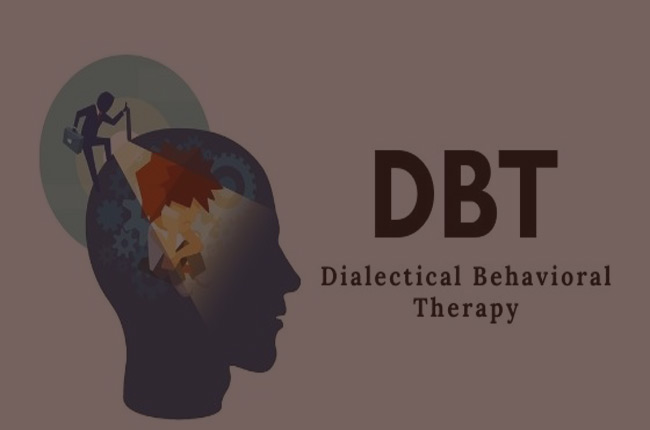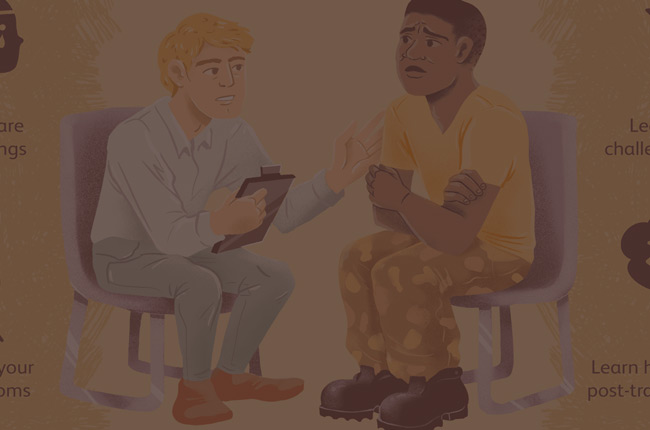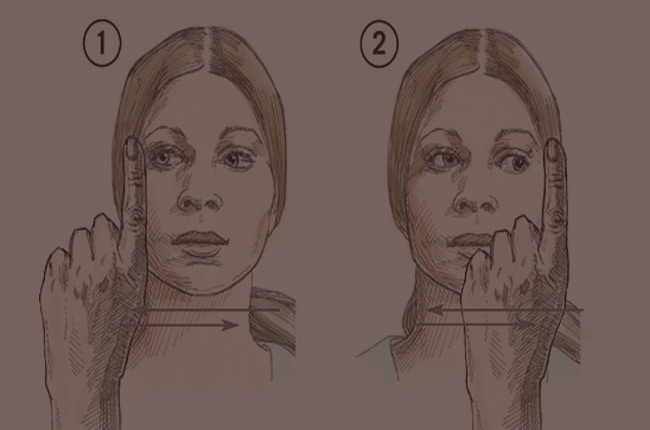About Citicare
Citicare Psychological Services is a golden touch psychotherapy and consulting hub with multidisciplinary specialists and services ranging from consultation, mental health evaluation, counselling, psychotherapy and other mental health services.
We offer evidence - based treatment and tailor - made approaches for the needs of our clients.
We attend to adults, children and adolescents’ mental health care needs.
Read More
Citicare Service delivery
In carrying out intervention, we adopt evidence based practices such as:
Cognitive Behaviour Therapy (CBT)
Dialectical Behaviour Therapy (DBT)
Exposure and Response Prevention Therapy (ERPT)
Cognitive Processing Therapy(CPT)
Eye Movement Desensitization Reprocessing (EMDR)
Psychodynamic therapy
Systematic Desensitization
Habit Reversal Therapy
Behavioural activation
Values of our Counseling & Psychological Services @ CITICARE
Professionalism
We apply best practice principles and conduct ourselves in a professional and ethical manner to deliver a professional psychological service for the benefit of our clients and visitors.
Strong Relationship
We value strong relationships as the primary vehicle in helping people achieve mental health, learn new ways of thinking, feeling and behaving. We also collaborate with the communities and organizations to provide comprehensive mental health services.
Competentency
We have professional and competent personnel with skills, knowledge, thorogh education, supervision, and feedback. We also work within our areas of competence and only provide services where we have adequate knowledge or experience.
Confidentiality
We understand that for people to feel comfortable talking about private and revealing information, they need a safe place to talk about anything they'd like, without fear of that information leaving the room. Therefore we take your privacy very seriously.
Findings and analysis suggest that patient may improve based on predictive treatment and routine psychological care.
Recovery or Reliable change:
When a patient perform above clinical cut-off during treatment of presented symptom and a thorough final psycholgical assessment after recovery.
Clinical Improvement
Having good psycological performance either in recovery or showing reliable improvement between initial and final assessment based on calculated reliable change index.
Positive and Conclusive End of Treatment
This happens when patient udergoing treatment or therapy is thoroughly assesed and determined to have fully recovered leading to a conclusive end of treatment or therapy.
Providing Psycological Services in Nigeria
We recognize the healthcare disparity that exist between physical health and mental health and are committed to providing good and quality psychological health care in Nigeria.

Video Insight of successful psychotherapy sessions.
Get insight into the success storeis of some of the concluded physcotherahy cases that leaves customers with a happy ending.
- Discussions on psychotheraphy case and tratment.
- Overview of professional care and support.
- Appreciation of usefulness of sessions, treatment and final recovery. A happy lookback at the whole process.
Cognitive Behaviour Therapy
CBT is an effective intervention for individuals suffering from anxiety disorders, depression, obsessive compulsive disorder, bipolar disorder and eating disorders. It is also often helpful for sleep difficulties, physical symptoms without a medical diagnosis and anger management.
CBT is pragmatic, highly structured, tends to focus on current difficulties rather than explore the historical origins of them and relies on a collaborative therapeutic relationship between therapist and client.
- You and your therapist will analyse your thoughts, feelings and behaviours to work out if they are unrealistic or unhelpful and to determine the effect they have on each other and on you.
- Confronting fears and anxieties can be very challenging so you and your therapist will need to work out together what pace feels comfortable for you. Your therapist will keep checking out in the sessions how comfortable you are with the progress you are making.
- The therapeutic relationship in CBT is one in which the therapist takes a psycho-educational approach and facilitates change through being a teacher and a coach.

Dialectical Behaviour Therapy
Dialectical Behaviour Therapy (DBT) was established for individuals who deal with distressing emotions and experiences by using unhealthy self-destructive behaviours such as self-harm, substance misuse and eating disorders. DBT is an effective, evidence-based treatment to support people who experience some of the following difficulties:
- People who feel isolated and lonely when in their own company.
- People who feel intense emotional pain and a sense of emptiness.
- People who feel depressed or anxious.
- People who find it difficult to build trust and maintain relationships with others.
- People who experience a chaotic painful life.
- People who feel uncomfortable in a close relationship, or that people are trying to control them.
- People who cannot cope well when people leave them.

Exposure and Response Prevention Therapy
ERP is a type of behavioral therapy that exposes people to situations that provoke their obsessions and the resulting distress while helping them prevent their compulsive responses. The ultimate goal of ERP is to free people from the cycle of obsessions and compulsions so they can live better.
Response prevention is key, because anything that gets rid of distress makes it impossible for us to get used to it. When people don’t turn to compulsions, they learn how to accept their obsessions instead of acting desperately to neutralize them. The thoughts are still difficult sometimes, but they no longer seem like a huge problem.
Exposure Therapy: The effectiveness of exposure therapy relies upon a behavioral principle called habituation. Habituation is the process by which a person's behavioral and sensory response diminishes over time, after repeated exposure to a particular stimulus. We all have experienced habituation. Have you ever jumped into an ice cold swimming pool, only to feel comfortable after a few minutes? That's habituation at work. Perhaps you have friends who live nearby an airport, busy highway, or a train station. Have you wondered how they could possibly concentrate or sleep with all that noise? Your friends may have felt the same way when they first moved in. Now, after living there for a while, their sensory neurons just stopped reacting to the noise. They will probably tell you that they are so accustomed to the noise they no longer even hear it anymore. They've become habituated to it.
Exposure therapy takes advantage of this principle of habituation. In the context of treatment, it means allowing repeated exposure to the feared object or situation, so that habituation can occur.
Response Prevention: Exposure therapy is usually coupled with response prevention. This is also known as "ritual prevention." This component of treatment is particularly important for people who have developed ritualized, repetitive behaviors such as compulsions. The compulsive behavior serves to "undo" or neutralize the anxiety that occurs when faced with an anxiety-provoking situation. Since compulsive behaviors serve to reduce or eliminate anxiety they are intrinsically rewarding. Therefore, they are repeated.
Response prevention is based on a principle of learning theory (specifically, operant conditioning). According to this principle, when a behavior is no longer rewarded (reinforced) it becomes extinct. This means the behavior gradually fades away. For instance, washing hands after contact with a doorknob serves to "undo," or negate the anxiety that occurs after touching a doorknob. Response prevention eliminates the rewarding effect of hand washing. As such, compulsive hand washing will gradually become extinct.

Cognitive Processing Therapy
Cognitive processing therapy (CPT) is a specific type of cognitive behavioral therapy that has been effective in reducing symptoms of PTSD that have developed after experiencing a variety of traumatic events including child abuse, combat, rape and natural disasters.
CPT is generally delivered in different sessions and helps patients learn how to challenge and modify unhelpful beliefs related to the trauma. In so doing, the patient creates a new understanding and conceptualization of the traumatic event so that it reduces its ongoing negative effects on current life.
What CPT Can Help With?
- Depression
- Cognitive distortions
- Psychological distress
- Anxiety
- Sleep disturbances
- Dissociation
- Anger
- Problems coping

Eye Movement Desensitization Reprocessing
Eye Movement Desensitisation and Reprocessing (EMDR) is a distinct treatment approach which uses bilateral stimulation to support the processing of distressing information that remain “frozen” in the brain or being unprocessed due to their overwhelming nature (e.g., in trauma). EMDR has been initially developed in order to successfully treat Post-traumatic Stress Disorder and this is where the bulk of its evidence-base presently lies, although EMDR is increasingly being used to treated other conditions in which disturbing memories play a part.
EMDR therapy focuses to past or present disturbing memories, experiences and related events. Eye movements (or other bilateral stimulation) are used during sessions. Once a memory or experience is agreed upon the therapist will ask the client to hold diverse facets of that event or thought in mind and to use his eyes to track the therapist’s hand as it moves back and forth across the client’s field of vision. Whilst this occurs, it is suggested that inner associations arise and the client begins to process the memory and distressing feelings. In successful EMDR therapy, the meaning of painful events is changed and integrated on an emotional level.
What can I expect if I receive EMDR?
- You and your therapist will agree on key traumatic memories that you want to work on.
- There will be some repetition of this process in the room which is part of the reprocessing experience.
- Your therapist will continue to work with you and focus on specific memories until the intense affect associated with them has decreased.
- EMDR can be delivered as a therapy in its own right or sometimes you might receive it in conjunction with another therapeutic approach as an adjunctive intervention.

Habit Reversal Therapy
Habit reversal training (HRT) is an evidence-based highly effective behavioral therapy for people with unwanted repetitive behaviors or habits. HRT works on behaviors such as: tics, hair pulling, nail biting, and skin picking to name a few, and is appropriate for people at any age.
Often we don’t really understand what is driving our behaviors (like relief from urges or feelings) until we look for them with the help of a professional.
Habit Reversal Training is made up of five parts:
- Awareness training: brings attention to the behavior so the person can gain better self-control and awareness. In this stage you will work to notice when you are performing the behavior, identify the earliest warning that a behavior is about to take place, and identify the situations where the behavior occurs.
- Competing response training: you will work with your therapist to come up with a different behavior to replace the old unwanted behavior and practice performing this new behavior.
- Motivation and compliance: you may make a list of all the problems that were caused by the behavior to remind you of the importance of sticking with it. Parents and friends may be asked to offer praise and encouragement for the person’s progress, support of family and friends can increase your chances of kicking an unwanted behavior.
- Relaxation training: habits or tics can be common when a person is under stress, it can be helpful to learn relaxation skills such as deep breathing, mental imaging, mindfulness, and progressive muscle relaxation to keep urges at bay.
- Generalization training: you will practice your new skills in a number of different situations so the new behavior becomes automatic.

Online / Virtual Therapy
Our Online/Virtual Therapy is designed to make it as easy as possible to get the help and support you need right in the comfort of your home or office.
Our therapists come from a wide array of different backgrounds, practices, beliefs, and cultures. You can get everything from online therapy, CBT to DBT therapy (dialectical behavioral therapy) with Citicare.
Citicare Online/Virtual Therapy offers affordable therapy as an alternative to in - office/physical therapy that allows a therapist to communicate with you remotely through text based chat, phone calls, or video calls. By choosing what method works best for you, you can get the help you need when you need it, and how you need it.
Read MoreOur Services
We provide a wide range of psychological and mental health services. Our service cut through all major psychological theraphy sessions and treatment available worldwide.
Child and Adolescents
Frequently Asked Questions
Things you need to know about psycotheraphy and counselling services.
Your counsellor provides a safe environment in which to explore your issues, and will be highly trained in listening and reflecting. With most types of therapy you are free to discuss what you wish, from everyday events, dilemmas, feelings, and thoughts, to regrets, aspirations, memories and dreams.
Other, shorter-term forms of therapy like cognitive behavioural therapy (CBT) can be more structured, and can provide practical exercises to help you understand your thoughts and actions.
Our Team
Meet out team of highly trained and skilled professionals with many years of experience in mental health practice.
News & Blog

Tips to Feeling Better Mentally
Be sure to make time for a short, 5 minute break each hour to help you unwind and refocus, no matter what you’re doing. Fitting at least a 30 minute break into your work day also gives you ...
Read More
How to know if therapy is working
You’ve been having therapy for a while now. You like your therapist and things are beginning to feel a little lighter… But how do you know if your therapy is actually working?You’ve been having ...
Read More
Can Depression Make You Sick?
There is a strong link between your brain and gastrointestinal system, therefore depression, anxiety, and stress can hinder the movement and contractions of your GI tract. Which can lead to ...
Read MoreContact Us
Get in touch
We are always available to serve you.
Location:
26, Akin Leigh Crescent, Lekki Phase 1 Lekki Eti-Osa Lagos Nigeria
Email:
Call Us:
+2347063695438
















